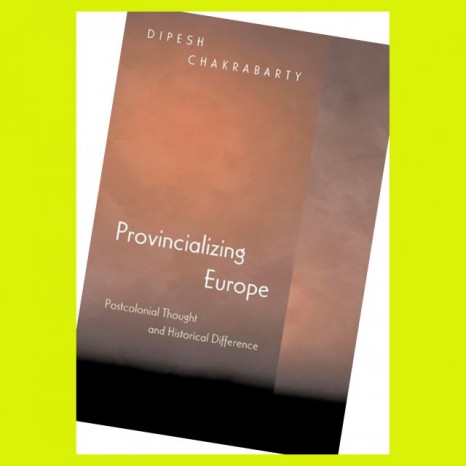The next Happy Friends Reading Club meeting is scheduled for Thursday, the 23rd of September, in the evening somewhere inside (or ever-so slightly outside) the 3rd Ring Road.

The text is from “Provincializing Europe: Postcolonial Thought and Historical Difference” (2000) by Dipesh Chakrabarty.
“Let me begin with an example from my own research in labor history. Consider the following description from the 1930s of a particular festival (still quite common in India) that entails the worshiping of machinery by workers: “In some of the jute mills near Calcutta the mechanics often sacrifice goats at this time [autumn]. A separate alter is erected by the mechanics. . . . Various tools and other emblems are placed upon it. . . . Incense is burnt. . . . Towards evening a male goat is thoroughly washed. . . and prepared for a . . . final sacrifice. . . . The animal is decapitated at one stroke . . . [and] the head is deposited in the . . . sacred Ganges.” This particular festival is celebrated in many parts of north India as a public holiday for the working class, on a day named after the engineer god Vishvakarma. How do we read it? To the extent that this day has now become a public holiday in India, it has obviously been subjected to a process of bargaining between employers, workers, and the state. One could also argue that insofar as the ideas of recreation and leisure belong to a discourse of what makes labor efficient and productive, this “religious” holiday itself belongs to the process through which labor is managed and disciplined, and is hence a part of the history of emergence of abstract labor in commodity form.” p. 77 (Chapter 3)
(If you would like to receive a copy of the text please leave a comment.)

 时间 posted on: 7 September 2010 |
时间 posted on: 7 September 2010 |  发布者 author:
发布者 author: 
 分类 filed under:
分类 filed under: